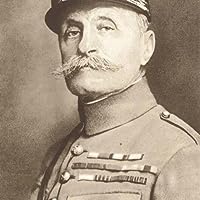World War I Quotes
Quotes tagged as "world-war-i"
Showing 1-30 of 125

“Perhaps ...
To R.A.L.
Perhaps some day the sun will shine again,
And I shall see that still the skies are blue,
And feel one more I do not live in vain,
Although bereft of you.
Perhaps the golden meadows at my feet,
Will make the sunny hours of spring seem gay,
And I shall find the white May-blossoms sweet,
Though You have passed away.
Perhaps the summer woods will shimmer bright,
And crimson roses once again be fair,
And autumn harvest fields a rich delight,
Although You are not there.
But though kind Time may many joys renew,
There is one greatest joy I shall not know
Again, because my heart for loss of You
Was broken, long ago.”
― Testament of Youth
To R.A.L.
Perhaps some day the sun will shine again,
And I shall see that still the skies are blue,
And feel one more I do not live in vain,
Although bereft of you.
Perhaps the golden meadows at my feet,
Will make the sunny hours of spring seem gay,
And I shall find the white May-blossoms sweet,
Though You have passed away.
Perhaps the summer woods will shimmer bright,
And crimson roses once again be fair,
And autumn harvest fields a rich delight,
Although You are not there.
But though kind Time may many joys renew,
There is one greatest joy I shall not know
Again, because my heart for loss of You
Was broken, long ago.”
― Testament of Youth

“Dulce Et Decorum Est
Bent double, like old beggars under sacks,
Knock-kneed, coughing like hags, we cursed through sludge,
Till on the haunting flares we turned our backs
And towards our distant rest began to trudge.
Men marched asleep. Many had lost their boots
But limped on, blood-shod. All went lame; all blind;
Drunk with fatigue; deaf even to the hoots
Of disappointed shells that dropped behind.
GAS! Gas! Quick, boys!-- An ecstasy of fumbling,
Fitting the clumsy helmets just in time;
But someone still was yelling out and stumbling
And floundering like a man in fire or lime.--
Dim, through the misty panes and thick green light
As under a green sea, I saw him drowning.
In all my dreams, before my helpless sight,
He plunges at me, guttering, choking, drowning.
If in some smothering dreams you too could pace
Behind the wagon that we flung him in,
And watch the white eyes writhing in his face,
His hanging face, like a devil's sick of sin;
If you could hear, at every jolt, the blood
Come gargling from the froth-corrupted lungs,
Obscene as cancer, bitter as the cud
Of vile, incurable sores on innocent tongues,--
My friend, you would not tell with such high zest
To children ardent for some desperate glory,
The old Lie: Dulce et decorum est
Pro patria mori.”
― The War Poems
Bent double, like old beggars under sacks,
Knock-kneed, coughing like hags, we cursed through sludge,
Till on the haunting flares we turned our backs
And towards our distant rest began to trudge.
Men marched asleep. Many had lost their boots
But limped on, blood-shod. All went lame; all blind;
Drunk with fatigue; deaf even to the hoots
Of disappointed shells that dropped behind.
GAS! Gas! Quick, boys!-- An ecstasy of fumbling,
Fitting the clumsy helmets just in time;
But someone still was yelling out and stumbling
And floundering like a man in fire or lime.--
Dim, through the misty panes and thick green light
As under a green sea, I saw him drowning.
In all my dreams, before my helpless sight,
He plunges at me, guttering, choking, drowning.
If in some smothering dreams you too could pace
Behind the wagon that we flung him in,
And watch the white eyes writhing in his face,
His hanging face, like a devil's sick of sin;
If you could hear, at every jolt, the blood
Come gargling from the froth-corrupted lungs,
Obscene as cancer, bitter as the cud
Of vile, incurable sores on innocent tongues,--
My friend, you would not tell with such high zest
To children ardent for some desperate glory,
The old Lie: Dulce et decorum est
Pro patria mori.”
― The War Poems

“One day the great European War will come out of some damned foolish thing in the Balkans (1888).”
―
―

“Long before it was known to me as a place where my ancestry was even remotely involved, the idea of a state for Jews (or a Jewish state; not quite the same thing, as I failed at first to see) had been 'sold' to me as an essentially secular and democratic one. The idea was a haven for the persecuted and the survivors, a democracy in a region where the idea was poorly understood, and a place where—as Philip Roth had put it in a one-handed novel that I read when I was about nineteen—even the traffic cops and soldiers were Jews. This, like the other emphases of that novel, I could grasp. Indeed, my first visit was sponsored by a group in London called the Friends of Israel. They offered to pay my expenses, that is, if on my return I would come and speak to one of their meetings.
I still haven't submitted that expenses claim. The misgivings I had were of two types, both of them ineradicable. The first and the simplest was the encounter with everyday injustice: by all means the traffic cops were Jews but so, it turned out, were the colonists and ethnic cleansers and even the torturers. It was Jewish leftist friends who insisted that I go and see towns and villages under occupation, and sit down with Palestinian Arabs who were living under house arrest—if they were lucky—or who were squatting in the ruins of their demolished homes if they were less fortunate. In Ramallah I spent the day with the beguiling Raimonda Tawil, confined to her home for committing no known crime save that of expressing her opinions. (For some reason, what I most remember is a sudden exclamation from her very restrained and respectable husband, a manager of the local bank: 'I would prefer living under a Bedouin muktar to another day of Israeli rule!' He had obviously spent some time thinking about the most revolting possible Arab alternative.) In Jerusalem I visited the Tutungi family, who could produce title deeds going back generations but who were being evicted from their apartment in the old city to make way for an expansion of the Jewish quarter. Jerusalem: that place of blood since remote antiquity. Jerusalem, over which the British and French and Russians had fought a foul war in the Crimea, and in the mid-nineteenth century, on the matter of which Christian Church could command the keys to some 'holy sepulcher.' Jerusalem, where the anti-Semite Balfour had tried to bribe the Jews with the territory of another people in order to seduce them from Bolshevism and continue the diplomacy of the Great War. Jerusalem: that pest-house in whose environs all zealots hope that an even greater and final war can be provoked. It certainly made a warped appeal to my sense of history.”
― Hitch 22: A Memoir
I still haven't submitted that expenses claim. The misgivings I had were of two types, both of them ineradicable. The first and the simplest was the encounter with everyday injustice: by all means the traffic cops were Jews but so, it turned out, were the colonists and ethnic cleansers and even the torturers. It was Jewish leftist friends who insisted that I go and see towns and villages under occupation, and sit down with Palestinian Arabs who were living under house arrest—if they were lucky—or who were squatting in the ruins of their demolished homes if they were less fortunate. In Ramallah I spent the day with the beguiling Raimonda Tawil, confined to her home for committing no known crime save that of expressing her opinions. (For some reason, what I most remember is a sudden exclamation from her very restrained and respectable husband, a manager of the local bank: 'I would prefer living under a Bedouin muktar to another day of Israeli rule!' He had obviously spent some time thinking about the most revolting possible Arab alternative.) In Jerusalem I visited the Tutungi family, who could produce title deeds going back generations but who were being evicted from their apartment in the old city to make way for an expansion of the Jewish quarter. Jerusalem: that place of blood since remote antiquity. Jerusalem, over which the British and French and Russians had fought a foul war in the Crimea, and in the mid-nineteenth century, on the matter of which Christian Church could command the keys to some 'holy sepulcher.' Jerusalem, where the anti-Semite Balfour had tried to bribe the Jews with the territory of another people in order to seduce them from Bolshevism and continue the diplomacy of the Great War. Jerusalem: that pest-house in whose environs all zealots hope that an even greater and final war can be provoked. It certainly made a warped appeal to my sense of history.”
― Hitch 22: A Memoir
“If we have never sought, we seek Thee now;
Thine eyes burn through the dark, our only stars;
We must have sight of thorn-pricks on Thy brow,
We must have Thee, O Jesus of the Scars.
The heavens frighten us; they are too calm;
In all the universe we have no place.
Our wounds are hurting us; where is the balm?
Lord Jesus, by Thy Scars, we claim Thy grace.
If, when the doors are shut, Thou drawest near,
Only reveal those hands, that side of Thine;
We know to-day what wounds are, have no fear,
Show us Thy Scars, we know the countersign.
The other gods were strong; but Thou wast weak;
They rode, but Thou didst stumble to a throne;
But to our wounds only God’s wounds can speak,
And not a god has wounds, but Thou alone.”
―
Thine eyes burn through the dark, our only stars;
We must have sight of thorn-pricks on Thy brow,
We must have Thee, O Jesus of the Scars.
The heavens frighten us; they are too calm;
In all the universe we have no place.
Our wounds are hurting us; where is the balm?
Lord Jesus, by Thy Scars, we claim Thy grace.
If, when the doors are shut, Thou drawest near,
Only reveal those hands, that side of Thine;
We know to-day what wounds are, have no fear,
Show us Thy Scars, we know the countersign.
The other gods were strong; but Thou wast weak;
They rode, but Thou didst stumble to a throne;
But to our wounds only God’s wounds can speak,
And not a god has wounds, but Thou alone.”
―

“Pletcher went out to Ethyl, who was still sitting in the weather, water droplets on her dense coat blinking in the hazy light like sea sparkle in the night off Bimini.”
― Strangers and Sojourners: A Big Percy Pletcher thriller
― Strangers and Sojourners: A Big Percy Pletcher thriller

“The dog was standing guard at the rail of the Hatteras, looking at the harbormaster and a woman on the pier in front of her.”
― Strangers and Sojourners: A Big Percy Pletcher thriller
― Strangers and Sojourners: A Big Percy Pletcher thriller
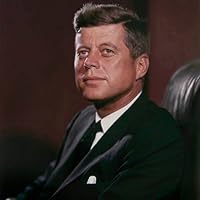
“The 1930s, Kennedy said, 'taught us a clear lesson; aggressive conduct, if allowed to go unchecked and unchallenged, ultimately leads to war.”
―
―
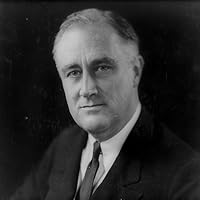
“From the end of the World War twenty-one years ago, this country, like many others, went through a phase of having large groups of people carried away by some emotion--some alluring, attractive, even speciously inspiring, public presentation of a nostrum, a cure-all. Many Americans lost their heads because several plausible fellows lost theirs in expounding schemes to end barbarity, to give weekly handouts to people, to give everybody a better job--or, more modestly, for example, to put a chicken or two in every pot--all by adoption of some new financial plan or some new social system. And all of them burst like bubbles.
Some proponents of nostrums were honest and sincere, others--too many of them--were seekers of personal power; still others saw a chance to get rich on the dimes and quarters of the poorer people in our population. All of them, perhaps unconsciously, were capitalizing on the fact that the democratic form of Government works slowly. There always exists in a democratic society a large group which, quite naturally, champs at the bit over the slowness of democracy; and that is why it is right for us who believe in democracy to keep the democratic processes progressive--in other words, moving forward with the advances in civilization. That is why it is dangerous for democracy to stop moving forward because any period of stagnation increases the numbers of those who demand action and action now.”
―
Some proponents of nostrums were honest and sincere, others--too many of them--were seekers of personal power; still others saw a chance to get rich on the dimes and quarters of the poorer people in our population. All of them, perhaps unconsciously, were capitalizing on the fact that the democratic form of Government works slowly. There always exists in a democratic society a large group which, quite naturally, champs at the bit over the slowness of democracy; and that is why it is right for us who believe in democracy to keep the democratic processes progressive--in other words, moving forward with the advances in civilization. That is why it is dangerous for democracy to stop moving forward because any period of stagnation increases the numbers of those who demand action and action now.”
―

“It was the seventh of November, 1918. The war was finally over. Maybe it would be declared a holiday and named War's End Day or something equally hopeful and wrong. Wars would break out again. Violence was part of human nature as much as love and generosity.”
― The Heart Specialist
― The Heart Specialist

“Yea ! by your works are ye justified--toil unrelieved ;
Manifold labours, co-ordinate each to the sending achieved ;
Discipline, not of the feet but the soul, unremitting, unfeigned ;
Tortures unholy by flame and by maiming, known, faced, and disdained ;
Courage that suns
Only foolhardiness ; even by these, are ye worthy of your guns.”
―
Manifold labours, co-ordinate each to the sending achieved ;
Discipline, not of the feet but the soul, unremitting, unfeigned ;
Tortures unholy by flame and by maiming, known, faced, and disdained ;
Courage that suns
Only foolhardiness ; even by these, are ye worthy of your guns.”
―
“No commander was ever privileged to lead a finer force; no commander ever derived greater inspiration from the performance of his troops.”
―
―
“In each succeeding war there is a tendency to proclaim as something new the principles under which it is conducted. Not only those who have never studied or experienced the realities of war, but also professional soldiers frequently fall into the error. But the principles of warfare as I learned them at West Point remain unchanged.”
― My Experiences in the World War
― My Experiences in the World War
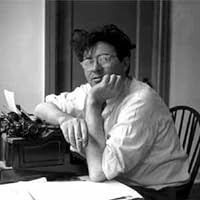
“He had come to America, haven of peace and liberty, and it, too, was joining the slaughter, fighting for the big capitalists. There was no peace for men, only murder, cruelty, brutality.”
― Studs Lonigan
― Studs Lonigan

“In 1914, Franz Ferdinand, the Austrian imperial heir, was shot and killed by a Serbian nationalist in Sarajevo. Do you know the motive behind the act?
It was in retaliation for the subjugation of the Sebs in Austria.
It was not.Franz Ferdinand had stated his intention to introduce reforms favorable to the Serbs in his empire. Had he survived to ascend the throne, he would have made a revolution unnecessary. In plain terms, he was killed because he was going to give the rebels what they were shouting for. They needed a despot in the palace in order to seize it.
What's good for reform is bad for the reformers”
― Gas City
It was in retaliation for the subjugation of the Sebs in Austria.
It was not.Franz Ferdinand had stated his intention to introduce reforms favorable to the Serbs in his empire. Had he survived to ascend the throne, he would have made a revolution unnecessary. In plain terms, he was killed because he was going to give the rebels what they were shouting for. They needed a despot in the palace in order to seize it.
What's good for reform is bad for the reformers”
― Gas City
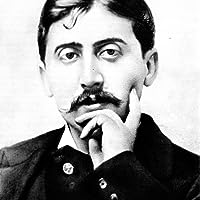
“The real propaganda is what—if we are genuinely a living member of a nation—we tell ourselves because we have hope, hope being a symbol of a nation's instinct of self-preservation. To remain blind to the unjustness of the cause of the individual "Germany," to recognise at every moment the justness of the cause of the individual "France," the surest way was not for a German to be without judgement, or for a Frenchman to possess it, it was, both for the one and for the other, to be possessed of patriotism.”
― Time Regained
― Time Regained

“He is right. We are not youth any longer. We don't want to take the world by storm. We are fleeing. We fly from ourselves. From our life. We were eighteen and had begun to love life and the world; and we had to shoot it to pieces. The first bomb, the first explosion, burst in our hearts. We are cut off from activity, from striving, from progress. We believe in such things no longer, we believe in war.”
― All Quiet on the Western Front
― All Quiet on the Western Front
“...My deepest personal reason for staying in Paris is that whatever I have as a character, good or bad, is based on the fact that since the age of four I have never run away from anything however painful or dangerous when I thought it was my duty to take a stand -- the American Ambassador to France upon being asked to evacuate Paris by the State Department on the eve of Nazi occupation of Paris in 1940”
―
―
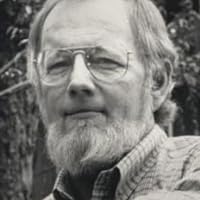
“... your father and I were in the trenches together, in the Great War. That was a war all right. Oh I know there have been other wars since, better-publicized ones, more expensive ones perhaps, but our war is the one I'll always remember. Our war is the one that means war to me.”
― Snow White
― Snow White
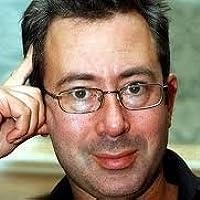
“— Я вот чего себя постоянно спрашиваю: кому, на хрен, понадобилась эта сволочь — эрцгерцог Фердинанд, как его там? — сказал один парень. — В смысле, ребята, никто ж даже не слышал об этом говнюке, пока его не прикончили. А теперь весь мир, мать его, из-за этого воюет.
...”
―
...”
―

“The British people realise that they are fighting for the hegemony of the Empire. If necessary we shall continue the war single-handed.”
―
―

“The United States could not win the war if blacks continued as sharecroppers down South. The South was not an important area either politically or economically as far as the internationalists were concerned. (“The white South,” Myrdal wrote, “is itself a minority and a national problem.”) It was important only as a source of much-needed labor, at a time when most white southerners concurred because they no longer needed them to chop or harvest cotton and considered migration a simple solution to their biggest social problem. The foundations which did the thinking for the internationalist ruling class quickly realized that that flow of labor into the factories of the industrial North was impeded less by the system of political segregation in the South than by what they would eventually term the de-facto housing segregation in the North, which meant, in effect, the existence of residential patterns based on ethnic neighborhoods. The logistics problem facing Louis Wirth and his colleagues in the psychological-warfare establishment was not so much how to move the black up from the South — the wage differential and the railroads would accomplish that — but rather where to put him when he got there. Northern cities like Chicago, Detroit, and Philadelphia were essentially an assemblage of neighborhoods arranged as ethnic fiefdoms, dominated at that time by the most recent arrivals from Southern and Eastern Europe as well as the Irish and Germans.
As Wirth makes clear in his sociological writings, any group that has this kind of cohesiveness and population density had political power, and the question in his mind was precisely whether this political power was going to be used in the interests of the WASP ruling elite, who needed these people to fight a war that had nothing approaching majority support among ethnics of the sort Wirth viewed with suspicion.
This group of “ethnic” Americans posed a problem for the psychological-warfare establishment because it posed a problem to the ethnic group that made up that establishment. This group of people constituted a Gestalt - ethnic, Catholic, unionized, and urban - whose mutual and reinforcing affiliations effectively removed them from the influence of instruments of mass communication which the psychological-warfare establishment saw as critical in controlling them. If one added the demographic increase this group enjoyed — as Catholics they were forbidden to use contraceptives — it is easy enough to see that their increase in political power posed a threat to WASP hegemony over the culture at precisely the moment when the WASP elite was engaged in a life-and-death struggle with fascism. It was Wirth’s job to bring them under control, lest they jeopardize the war effort.”
― The Slaughter of Cities: Urban Renewal as Ethnic Cleansing
As Wirth makes clear in his sociological writings, any group that has this kind of cohesiveness and population density had political power, and the question in his mind was precisely whether this political power was going to be used in the interests of the WASP ruling elite, who needed these people to fight a war that had nothing approaching majority support among ethnics of the sort Wirth viewed with suspicion.
This group of “ethnic” Americans posed a problem for the psychological-warfare establishment because it posed a problem to the ethnic group that made up that establishment. This group of people constituted a Gestalt - ethnic, Catholic, unionized, and urban - whose mutual and reinforcing affiliations effectively removed them from the influence of instruments of mass communication which the psychological-warfare establishment saw as critical in controlling them. If one added the demographic increase this group enjoyed — as Catholics they were forbidden to use contraceptives — it is easy enough to see that their increase in political power posed a threat to WASP hegemony over the culture at precisely the moment when the WASP elite was engaged in a life-and-death struggle with fascism. It was Wirth’s job to bring them under control, lest they jeopardize the war effort.”
― The Slaughter of Cities: Urban Renewal as Ethnic Cleansing
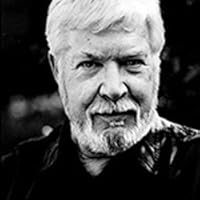
“[...] waiting for the shot that would kill him. Everyone said you didn't hear that shot. They said if it got you it was silent. How the hell did anyone alive know that?”
― [The Wars] [Author: Findley, Timothy] [August, 2001]
― [The Wars] [Author: Findley, Timothy] [August, 2001]

“I do not know your names. I do not know if you have parents, sisters, lovers, children. I do not know who you could have become; neither do you. You pass on, lost forever. But I will not forget you. No one will forget you.”
― Forgotten Things Remembered
― Forgotten Things Remembered

“After six weeks training in England, Father was sent to France. Later, Father said that when he got his rifle, he had felt like two men. Like being on a horse.”
― The Road to Nab End : A Lancashire Childhood
― The Road to Nab End : A Lancashire Childhood
“War is a tissue of uncertainty, its theory often displaying conviction and confidence not reflected in its practice.”
―
―
“A shell splinter cut Rags’s left forepaw. Another caromed off his gas mask, mangling his right ear. A needle-like sliver was imbedded under his right eye. The terrier was dazed for a minute, Then he struggled to his feet. Donovan lay where he had fallen. His gas mask had been shot away; arms and legs were cat by shrapnel. Blood from a gash in his forehead was blinding him. Over all hung the burning tang of gas—thinned somewhat by a northwest breeze, but still strong enough to sear the throats of sergeant and terrier. Between wheezes and coughs Rags pawed the now useless mask from his head. He licked first the sergeant’s outflung hand, then his face. Donovan roused himself. He lengthened the wire that tied the message to the dog’s collar, so Rags could carry the paper in his mouth. It would be lost if the little terrier succumbed before delivering it. The Sergeant started the dog toward the guns. As near-by bursts intensified the gas, Donovan staggered to his feet and urged the dog to a run. The terrier, favoring his wounded paw as much as he could, moved at a limping trot. Donovan, stumbling along behind, saw the concussion of a nearby shell-blast turn the little terrier on his back.”
― Rags: The Dog Who Went to War
― Rags: The Dog Who Went to War

“No one told them that dollars and cents were the real reason. No one mentioned to them, as they marched away, that their going and their dying would mean huge war profits. No one told these American soldiers that they might be shot down by bullets made by their own brothers here. No one told them that the ships on which they were going to cross might be torpedoed by submarines built with United States patents. They were just told it was to be a 'Glorious Adventure' (Page 44)”
― War Is a Racket
― War Is a Racket
All Quotes
|
My Quotes
|
Add A Quote
Browse By Tag
- Love Quotes 98.5k
- Life Quotes 76.5k
- Inspirational Quotes 73.5k
- Humor Quotes 44k
- Philosophy Quotes 30k
- Inspirational Quotes Quotes 27k
- God Quotes 26.5k
- Truth Quotes 24k
- Wisdom Quotes 24k
- Romance Quotes 23.5k
- Poetry Quotes 22.5k
- Death Quotes 20k
- Life Lessons Quotes 20k
- Happiness Quotes 19k
- Quotes Quotes 18k
- Hope Quotes 18k
- Faith Quotes 18k
- Inspiration Quotes 17k
- Spirituality Quotes 15k
- Religion Quotes 15k
- Motivational Quotes 15k
- Writing Quotes 15k
- Relationships Quotes 14.5k
- Life Quotes Quotes 14.5k
- Love Quotes Quotes 14k
- Success Quotes 13.5k
- Time Quotes 12.5k
- Motivation Quotes 12.5k
- Science Quotes 11.5k
- Motivational Quotes Quotes 11.5k

